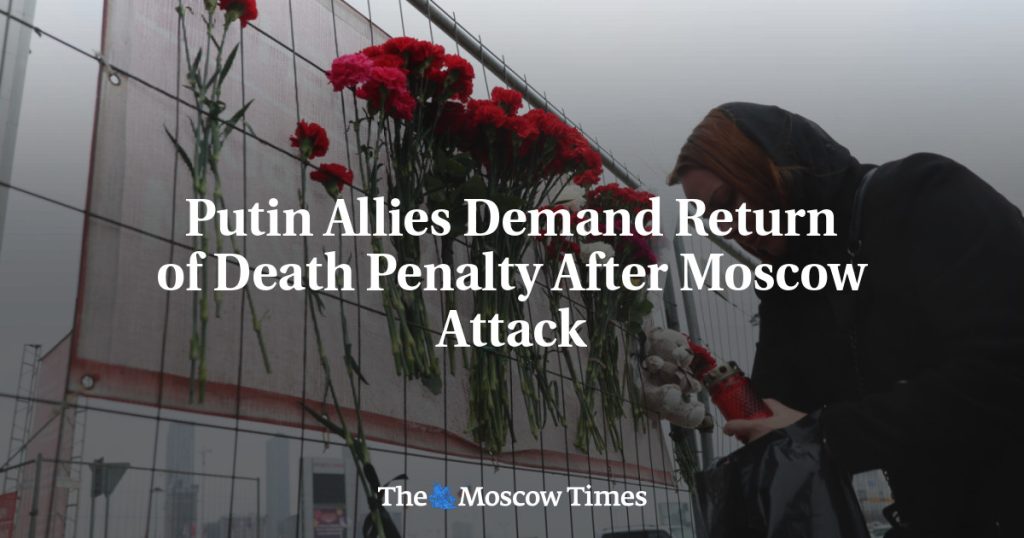Senior members of Russian President Vladimir Putin’s regime have recently called for the reinstatement of the death penalty in the country following a deadly attack on a Moscow concert hall. This demand has sparked criticism from various parties, particularly due to Russia’s history of using counter-terrorism and anti-extremist laws to target both Kremlin opponents and supporters of Ukraine. Despite Russia having a moratorium on capital punishment since the 1990s, there is growing support within the Putin camp to lift this ban in response to the deadliest attack the country has seen in two decades.
After more than 130 people were killed in the attack on the Crocus City Hall concert hall, calls for the death penalty have intensified. Vladimir Vasilyev, head of the ruling United Russia party in the State Duma, has stated that the topic will be thoroughly examined and a decision will be made to meet the expectations of society. Deputy head of the State Duma’s security committee, Yury Afonin, also expressed the need to bring back the death penalty specifically for cases of terrorism and murder. Former President Dmitry Medvedev and Duma speaker Vyacheslav Volodin, who are close allies of Putin, have joined in calling for the “terrorists” to be “destroyed” following the attack.
However, critics have raised concerns over the potential reinstatement of the death penalty in Russia. They point to the country’s broad use of counter-terrorism and anti-extremist laws, which have been used to suppress government critics and supporters of Ukraine. The number of terror-related criminal cases opened in Russia has increased significantly in recent years, reaching a record 143 cases in 2023, as reported by the independent Mediazona news site. Additionally, the “international LGBT movement” has been added to Russia’s list of “terrorists and extremists” by the country’s financial monitoring watchdog.
Critics, including women’s rights campaigner Alyona Popova, have expressed fears about the consequences of implementing the death penalty for terrorism. They worry about the potential for innocent individuals to be wrongly accused and sentenced to death under the guise of fighting terrorism. With many people already imprisoned on “extremism” charges in Russia, there is a concern that broadening the scope of the death penalty could lead to further abuses of power. Popova stressed the importance of not using tragedy as a justification for harsh measures that could result in the loss of innocent lives.
The push to reinstate the death penalty in Russia reflects a growing sentiment within the Putin regime to adopt more aggressive measures in response to acts of terrorism. While the attack on the Moscow concert hall has sparked calls for harsher punishments for terrorists, critics argue that such a move could lead to abuses of power and violations of human rights. As the debate over the death penalty continues to unfold in Russia, it remains to be seen how the government will balance the need for security with respect for the rule of law and individual rights. The outcome of this debate could have far-reaching implications for the future of justice and human rights in the country.


